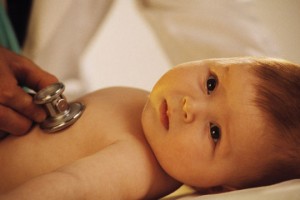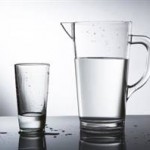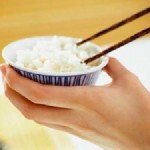Baby Diarrhea Treatment and Prevention with Home Remedies
 A mild degree of baby diarrhea can be safely treated at home. You should stop giving milk and solids to the baby for at least 24 hours and gradually re-introduce a normal diet over the following days.
A mild degree of baby diarrhea can be safely treated at home. You should stop giving milk and solids to the baby for at least 24 hours and gradually re-introduce a normal diet over the following days.
On the first day, instead of milk you may give glucose solution by taking two level teaspoonfuls of glucose in one cup of boiled water. It is not only glucose which is necessary in cases of diarrhea. Some salts should be given along with water.
Nowadays, electrolyte preparations are available over the counter known as oral re-hydration are solutions (ORS), which can be prepared easily by adding them to boiled water.
If your breastfed baby has gastroenteritis, do not breast feed for the 24 hours of the illness but give the recommended amount of oral re-hydration solution. On each successive day, reduce the amount of solution and put your baby back to breast feeding. If you get discomfort due to overfull breasts, the milk can be expressed.
If the baby is already weaned, give no milk or dairy products for five days but give glucose or electrolyte solutions in recommended doses. Give no solids on the first day and then gradually start giving sieved fruits and vegetables from day two onwards.
Role of Oral Re-hydration Solution (ORS)
 Diarrhea is a major cause of death in small children. Oral Re-hydration Therapy has evolved as the most crucial breakthrough in the management of this condition. No other single medical breakthrough of the 20th century has had the potential to prevent so many deaths, over such a short period of time and time and at so little cost.
Diarrhea is a major cause of death in small children. Oral Re-hydration Therapy has evolved as the most crucial breakthrough in the management of this condition. No other single medical breakthrough of the 20th century has had the potential to prevent so many deaths, over such a short period of time and time and at so little cost.
The oral re-hydration therapy which has come into vogue in recent years (old grandma’s remedy) has reduced the death rate of diarrhea, specially in rural areas. The treatment is cheap and can be given at home for mild to moderate degrees of dehydration.
You can make your own re hydration solution at home by adding one teaspoon of sugar and a pinch of salt to one quarter of water. But if you make a mistake, you can overload the baby with salt which creates problems sometimes.
Commercially available oral rehydration solutions (Electral, Ricetral, etc) are ideal because they have various salts in the exact quantity required by the body. There is no danger of salt overload. Remember, you must dilute them in the specified quantity of water.
Baby Diarrhea Diet and Foods at Home
 The usual diet of solids or top milk should, of course, be stopped in infant diarrhea. But breast milk should be continued as far as possible because of its anti-infective properties. In severe diarrhea, only ripe banana and apple or pomegranate juice may be given in small quantities at frequent intervals.
The usual diet of solids or top milk should, of course, be stopped in infant diarrhea. But breast milk should be continued as far as possible because of its anti-infective properties. In severe diarrhea, only ripe banana and apple or pomegranate juice may be given in small quantities at frequent intervals.
With improvement in the stools, start with starchy gruels made of arrowroot, sago or rice. These may be spiced with powdered ginger, cumin seeds etc.
Soup of lean meat, pulses water and butter milk (with butter removed) may also be given. When the stools become semisolid one can start with soft rice, curds and diluted milk and with further improvement, regular items gradually re-introduced. Drinking light tea or coffee or other astringents is no longer along advocated in acute diarrhea.
Milk intolerance can temporarily occur in many cases of acute diarrhea. If it is present, then milk and all preparations based on milk and (including buttermilk, whey and curds) should be omitted for 2-3 days.
When restarting milk in such cases it should be initially diluted and given in small amounts in order to present the intestine with small amounts of milk load.
Don’t restrict the food too long
Most people do not know how long to keep the child on a restricted diet. Children may have loose stools for quite some time. They may pass one or two watery stools in a day for a couple of weeks. If the child looks normal you can start a normal diet after 4-5 days. Do not restrict the diet for too long. Otherwise they will be under-nourished.
Human Milk and Childhood Diarrhea
Human milk is a clean source of water in early infancy. Its protection is highest in the new born via colostrum. Human milk actively provides protection against and almost completely infectious diarrhea in early infancy.
Human milk kills parasitic intestinal protozoa. Experiments have shown that parasites like Giardia Lamblia and Entamoeba Histolytica are rapidly killed by human milk. Hence:
- Breast feed from birth to ensure intake of colostrum.
- Breast feed alone in early infancy.
- Introduced other foods only when benefits outweigh risks.
- Positively avoid bottle feeding as a hospital policy.
- Support breast feeding and minimize bottle feeding as a part of national nutrition, health and development policies.
- Introduction of foods other than human milk should be avoided until really indicated.
- Bottle feeding with a cow’s milk-based formula may be dangerous, because of cleaning problems.
Breastfeeding is not of course the complete answer to the prevention of this diseases in infancy but its important is greatest in this regard in the new born and to the baby in the first 6-9 months of life.
Diarrhea Prevention and Home Remedies
If anyone in the family is suffering from gastroenteritis, it is very important to avoid spreading of infection to other younger family members by taking the following precautions:
- Wash your hands with soap and water after going to the lavatory.
- Sterilize all feeding equipment and dummy nipples regularly.
- Always wash your hands before preparing feeds and after changing nappies.
- Keep a separate towel for your baby and wash it often.
Role of Antibiotics in Diarrhea
There has been unnecessary use of antibiotics in recent years. The advancement in the knowledge and use of fluid and electrolyte therapy has improved the prognosis of diarrhea cases in general. The importance of breast feeding which was known for the prevention of diarrhea has now been affirmed on scientific grounds.
Most cases of diarrhoea are due to viruses and antibiotics are not required. Antibiotics should only be given under the following conditions with advice of your doctor:
- Age below 3 months
- High fever with toxemia
- Evidence of infection elsewhere e.g. pneumonia
- Weakness and malnutrition
- Prolonged diarrhea (more than 3 or 4 days)
- Bacillary dysentery (with blood and/or mucus in stool)